Life
Sign up for our newsletter
We summarize the week's scientific breakthroughs every Thursday.
-
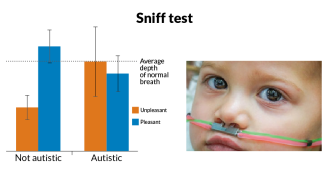 Health & Medicine
Health & MedicineSmell test may detect autism
A quick sniff test could reveal whether or not a child has autism, but some scientists have doubts.
By Meghan Rosen -
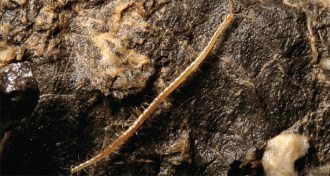 Animals
AnimalsCentipede discovered in caves 1,000 meters belowground
A newly discovered centipede species lives deep underground.
-
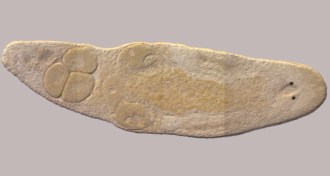 Animals
AnimalsFlatworm can self-fertilize by stabbing itself in the head
Hermaphroditic flatworms with hypodermic-style mating get sharp with themselves.
By Susan Milius -
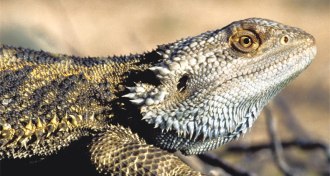 Animals
AnimalsHeat turns wild genetic male reptiles into functional females
Genetic male bearded dragons changed to females by overheating in the wild can still breed successfully.
By Susan Milius -
 Life
LifePuzzling cosmic signals, processed food defined and more reader feedback
Readers sort out a definition for processed food, discuss the benefits of tinkering with human DNA and more.
-
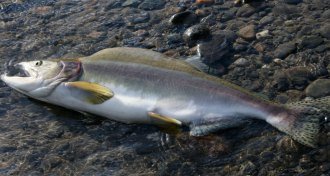 Climate
ClimatePink salmon threatened by freshwater acidification
Ocean acidification gets more attention, but freshwater systems are also acidifying. That’s a problem for young salmon, a new study finds.
-
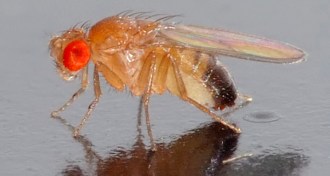 Neuroscience
NeuroscienceOld fruit flies’ swagger restored with brain chemical dopamine
Replenishing the chemical communicator dopamine to a handful of nerve cells makes old flies feel frisky again.
-
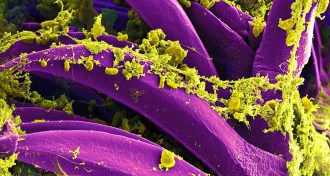 Health & Medicine
Health & MedicineGenetic tweak turned plague bacterium deadly
Two genetic changes allowed plague bacteria to cause deadly lung infections and pandemic disease.
-
 Neuroscience
NeurosciencePain may come in his and hers
Males and females rely on different kinds of cells to carry pain signals, a mouse study suggests.
-
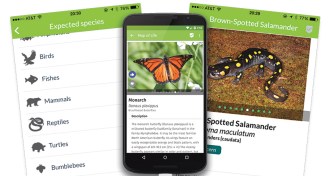 Tech
TechNew app creates a searchable network of species worldwide
A free new app compiles millions of records of species worldwide and allows users to add sightings.
-
 Life
LifeAlison Jolly’s last book chronicles efforts to save lemurs
In ‘Thank You, Madagascar,’ primatologist Alison Jolly, who spent decades studying lemurs, provides an insider’s account of the struggles that conservationists face.
By Erin Wayman -
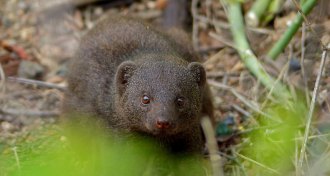 Animals
AnimalsFor dwarf mongooses, handstands aren’t just good fun
Dwarf mongooses may use marks laid down in handstand positions to gather information on rivals, a new study shows.